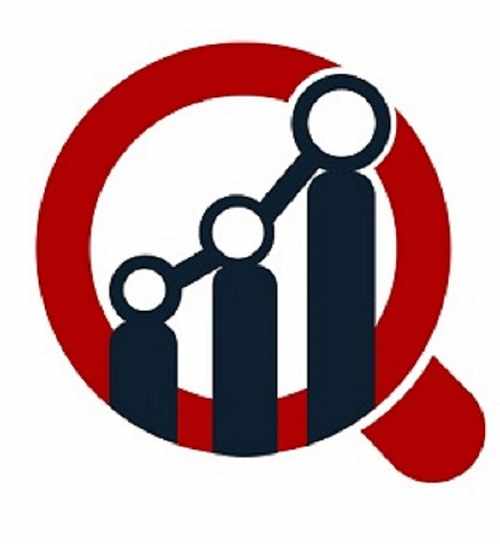
The Process Automation and Instrumentation Market is a critical enabler of operational efficiency and productivity across various industries. This market encompasses technologies, tools, and solutions that automate industrial processes, monitor operations, and enhance precision in controlling variables like temperature, pressure, and flow. Industries such as oil & gas, pharmaceuticals, chemicals, food & beverages, and energy rely heavily on these systems to optimize performance, ensure safety, and achieve sustainability goals.
Get FREE Sample Report:
Market Size and Growth Projections
The global Process Automation and Instrumentation Market was valued at approximately USD 65 billion in 2023 and is projected to grow at a CAGR of 6.8% from 2024 to 2032. By 2032, the market is expected to reach a valuation of USD 120 billion. This growth is driven by advancements in automation technologies, the rise of Industry 4.0, and the increasing adoption of smart systems in industrial operations.
Key Drivers of Growth
Adoption of Industry 4.0
The shift towards Industry 4.0 has propelled the adoption of advanced automation systems and IoT-enabled devices. These systems allow real-time data collection, analytics, and process optimization, enhancing overall productivity.Growing Need for Energy Efficiency
Industries are focusing on reducing energy consumption and minimizing waste. Automation and instrumentation solutions enable precise monitoring and control, helping achieve these objectives efficiently.Rising Industrial Safety Standards
Enhanced regulatory requirements for workplace safety and environmental protection are encouraging industries to invest in advanced monitoring and automation systems to ensure compliance.Technological Advancements
Innovations such as AI, machine learning, and edge computing have transformed the capabilities of process automation systems. These technologies enable predictive maintenance, anomaly detection, and enhanced decision-making.Demand for Operational Excellence
Companies are seeking ways to reduce operational costs and downtime while increasing throughput. Automation and instrumentation solutions facilitate seamless operations, reducing human error and increasing reliability.
Market Segmentation
By Component
Field Instruments: Sensors, transmitters, and controllers for monitoring and control.
Control Systems: Distributed Control Systems (DCS), Programmable Logic Controllers (PLC), and Supervisory Control and Data Acquisition (SCADA).
Software Solutions: Analytics platforms, process modeling tools, and monitoring applications.
By Application
Oil & Gas: Automation systems to optimize drilling, refining, and distribution processes.
Chemicals: Precision control systems for complex chemical production.
Pharmaceuticals: Ensuring regulatory compliance and quality control through automation.
Food & Beverages: Streamlining production lines and ensuring consistency in quality.
Energy & Power: Enhancing efficiency in power generation and distribution.
By Region
North America: A mature market driven by technological adoption and the presence of leading players.
Europe: Growth fueled by industrial modernization and sustainability initiatives.
Asia-Pacific: Rapid industrialization in countries like China and India is driving demand.
Rest of the World: Emerging markets in Latin America and the Middle East are increasingly adopting automation solutions.
Challenges in the Process Automation and Instrumentation Market
High Initial Costs
The implementation of advanced automation systems requires significant capital investment, which can deter small and medium-sized enterprises (SMEs).Integration Complexity
Integrating new automation solutions with legacy systems can be complex and time-consuming, posing a challenge for industries.Cybersecurity Risks
The increasing connectivity of industrial systems exposes them to cybersecurity threats. Ensuring robust security measures is essential.Lack of Skilled Workforce
Operating and maintaining advanced automation systems require specialized skills, which are often scarce in some regions.
Opportunities in the Market
Rise of Smart Factories
The transition to smart factories, which leverage IoT, AI, and robotics, presents significant growth opportunities for automation and instrumentation providers.Focus on Renewable Energy
The shift towards renewable energy sources requires advanced automation systems to manage complex power generation and distribution networks.Digital Twins
The adoption of digital twin technology allows industries to simulate processes, predict outcomes, and optimize operations in real time.Emerging Markets
Developing economies are increasingly investing in industrial automation to boost productivity and compete globally.
Competitive Landscape
The Process Automation and Instrumentation Market is highly competitive, with major players focusing on innovation, mergers, and partnerships to expand their market share. Key companies include:
Siemens AG: A leader in automation solutions, offering integrated systems for various industries.
ABB Ltd.: Known for its extensive portfolio of process automation products and digital solutions.
Honeywell International Inc.: Provides advanced process control systems and software solutions.
Emerson Electric Co.: Specializes in field instrumentation and control systems.
Rockwell Automation Inc.: Offers cutting-edge automation technologies and IoT-enabled solutions.
Future Trends
Edge Computing and IoT Integration
The adoption of edge devices and IoT-enabled sensors is enabling real-time monitoring and analytics at the source, enhancing decision-making capabilities.AI-Driven Automation
Artificial intelligence is set to play a pivotal role in predictive maintenance, anomaly detection, and process optimization.Sustainability-Focused Automation
Industries are prioritizing automation systems that reduce energy consumption, waste, and emissions to meet sustainability goals.Robotic Process Automation (RPA)
The use of RPA in industrial processes is expected to rise, automating repetitive tasks and increasing efficiency.Customization and Scalability
Solutions tailored to specific industry needs and scalable to accommodate growth will dominate the market.
Get Related Reports:
X-ray photoelectron spectroscopy Market
Vertical Lift Module (VLM) And Carousel-Based ASRS Market

















Write a comment ...